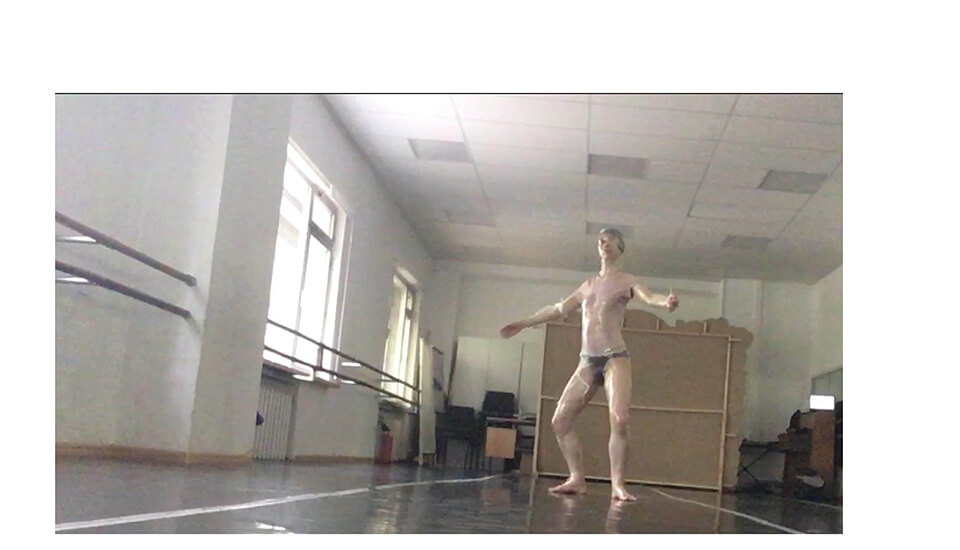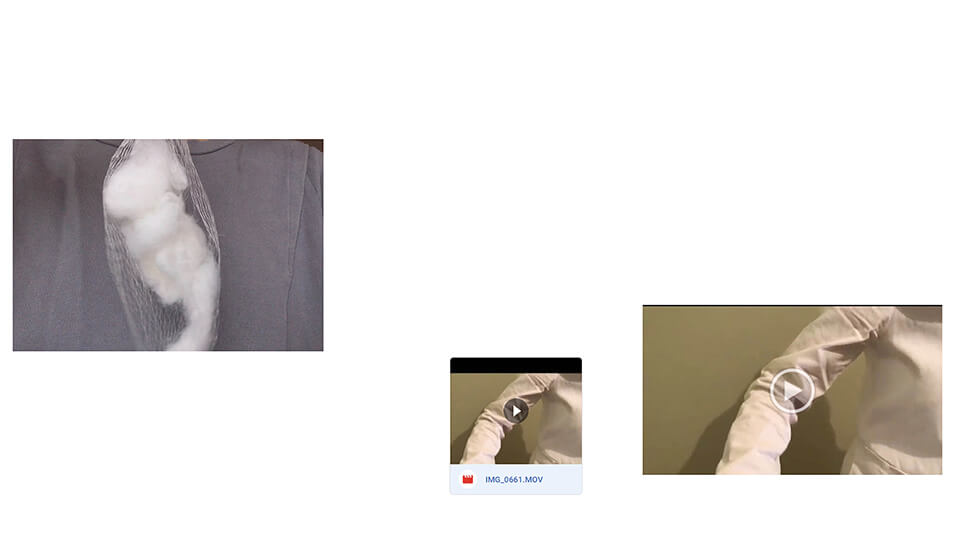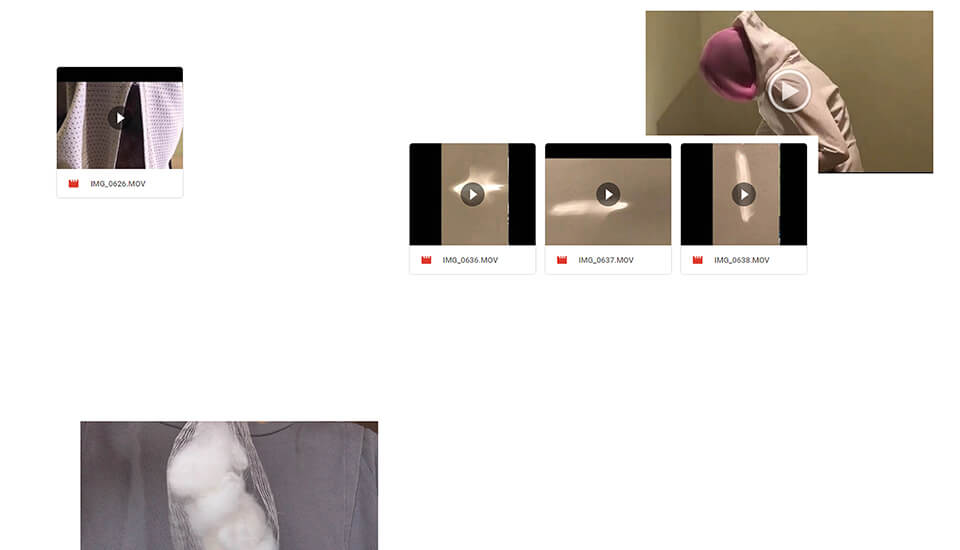Interview by Živa Brglez

H0 Institute for Metamorphosis has just organised the first edition of OTHERWISE, a 3-day post-Anthropocene-themed multisensorial and experimental festival-as-research, which took place in Zurich. Among the festival’s participants were
The trio’s art practice is heavily participatory, hands-on and action-oriented. Their interest lies in finding emancipatory possibilities within the material everyday practice as well as in investigating the impacts of intra-body relationships on social interactions. Furthermore, they are concerned with devising alternative ways of producing and reproducing knowledge, which overlaps with their critique of contemporary art’s ivory tower grammar. On the other side, they are also curious about the effects of the digital environment on offline processes and human behaviour.
When we talk about knowledge production, we cannot bypass arguably one of its most defining pillars, especially in the West: rationalism. This view, which regards reason as the chief source and test of knowledge, has, through history, mediated some of humanity’s greatest achievements. However, it has also detracted and devalued all other ways of knowing. Among them, chiefly empirical and speculative ones: affection, bodily sensations, intuitive, mystical, spiritual and the like were all banished by rationalism postulates.
Trio’s performative laboratory project, Speculative practices of body mutations, is thrust against this given rationale. The aim of the performative workshop series is exactly to address, examine and adapt the area of knowledge: to open it to everything that does not concern rational thinking. It is actually an attempt of overcoming mind-body dualism and forming a new ethical practice which is crucially a non-hierarchal one. The workshop’s focal point is the body – they suggest it is precisely on the body level that we can resist, subvert and liberate from rationality, which, in its current structure, entails phallogocentric order through the effects of textuality.
Workshop’s method is three-fold. Firstly, attention must be shifted to the micro-events of the body as a tool for mapping movement from an internal perspective. Secondly, the cultivation of emptiness, which bypasses our “masculine” lift and releases motor impulses. Thirdly, the juxtaposition of the “real” and virtual matter, which are both also, to a great extent, linked to ethical judgements and hierarchical valuations. Cyber-reality images are mixed with phenomena produced by participants’ bodies, thus mapping temporal, spatial and sensory zones and modes to create new relationships with the digital world.
Speculative practices of the body are, therefore, a dance that places a bet on politicising the effective and the sensual, from empathy to sexuality and desire, to transgress not only the production of knowledge and online-offline rupture but also the production of gender valuations.


For those that are not familiar with your practice, could tell us a bit about your background and who is behind ‘Speculative practices of body mutations’?
We are a fluid collaboration of three artists currently based in Moscow. Sasha is preoccupied with cyber issues. She makes a series of performative experiments named Syntax that deals with the interaction between our bodies and cyberspace and studies the phenomenon of the influence of the digital environment on offline processes and human behaviour. She works not only with performative experiments but also with sound, synthetic objects.
Among the relevant topics are also the plasticity of the laws of construction of the digital world, the erasure of personal boundaries, artificially created synesthesia, and the use of public communication channels for intervention. Sasha curated the ‘(I’m) possible object’ initiative as a student of the Rodchenko School and ICA Moscow. She was a resident of Center PROGR in Bern, also.
Daria is a researcher in visual studies and a choreographer. As a researcher, she was occupied with the problem of “How to dance politically?” – The question that became an article she wrote for the Art Moscow Magazine. She also has initiated a series of seminars on the practice of alternative ways of generating, accumulating and transmitting knowledge in collaboration with Liza Mozgunova. Criticises the expertise of the arcane jargon of the Academy and contemporary art, tries to find potential in the position of “amateurs” and “impostors”. As part of zh-v-yu [Natasha Zhukova, Katya Volkova, Daria Yurychuk] — a collaboration of movement researchers, practising choreography, dance and interactions, she worked on performances of contemporary dance “Garden”, “0day”, “Landscape for a dead dog” and for almost a year she’s been learning to interact with materials and surfaces.
Katya is a researcher and artist and is interested in marginal, regional, oppressed, alternative ways of interacting, the emancipatory potential of material practices, mechanics of the movement, and the influence of the intra-body relationships on social interactions. While living in Moldova, she organised a series of Post Real exhibition projects in Chisinau and Cahul and also in Transnistria (Tiraspol) and a series of performative workshops, educational screenings and discussions about the post-drama theatre. Now studies at ICA Moscow.
At OTHERWISE festival you are presenting ‘Speculative practices of body mutations’;, could you tell us the intellectual process behind it?
The first question that we asked ourselves was whether the most promising from our point of view theories of New Materialism and Posthumanism can be in fact practised. There is a substantial academic problem of a rupture between rational thinking and sensible body, theory and practice. Panel discussions, seminars and symposiums can’t make the theory work over and over again.
We try to revise and expand the area of knowledge, to open it to everything that does not require concern rational thinking: affection, intuition, and bodily sensations, which allow us to escape from the paradigm of Western rationalism as the basis for the current anthropocentric praxis. So we’ve chosen to reassemble emancipatory tactics of resistance on the level of the body to reconsider the performative production of knowledge from the standpoint of materiality and to debunk the opposition of the mind and the body. We are interested not only in body relationships to “real” matter but also in cyber reality. It’s impossible to draw the line between the cyber world and the material world. The emergence of cyberspace doesn’t divide the world into before and after.
Moreover, we raise the question, is cyberspace, in fact, virtual? However, we form the speculative theory that online and offline spaces are communicating vessels. Passing through the border between worlds, the practices seem to remain the same but change their properties and settings depending on which side they are now.
Our approach is synthetic and based on several entirely different but interweaving positions. On the one hand, it’s feminist, post-humanist and new materialist position of Rosi Braidotti, Karen Barad, Donna Haraway and Jane Bennett, the concept of the processual body by Annemarie Mol and John Law and Massumi’s and Manning’s reflection on the modes of perception. On the other hand, there are principles of the biomechanics of movement in Tai Chi and intuitive work with cyberspace. We also instrumentalise imagination and the virtual tracing of Brian Massumi’s approach to the imagination, mixing it with the Tai Chi notion of focus.
How do you come up with the idea?
Daria wrote a thesis work on Microchoeographies states that contemporary dance, by outlining a certain range of methods and practices and having its own conceptual history, could be an experimental field, the laboratory of new assemblies. It creates new practices and, therefore, can shift the boundaries of the body, inventing it, thus, anew.
Katya is into tai chi a lot, and while practising started to notice that reconfiguration of the biomechanics of the movement affects a much wider field than the hermetic space of practice.
Sasha studies change in the online \ offline contexts. Sasha proposed to connect these practices, and we realised that we have many junction points and basically that we’re talking about pretty similar things with different approach, and that it can be, in fact, emancipatory.
What reaction did you expect from the people who participated in the workshop?
Our workshop was created as a tree day program, as a research practice. And it’s exciting for us how such a format can be implemented in 3 hours. Despite the lack of time for long-term research, we still expect to share knowledge as well as active and initiative participation organised as a horizontal activity. We try to raise the sensibility to the body processes, real and cyber matter, so we hope that people will feel this kind of sensitivity.
What is your chief enemy of creativity?
Lack of resources, uncertainty, fear, precarity, depression, and passive aggression which born by the repressing process of capitalism.
You couldn’t live without…
Our bodies, the ability to virtualise, imagine, cognition, the ability to change constantly.






